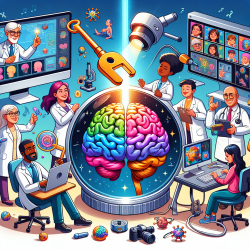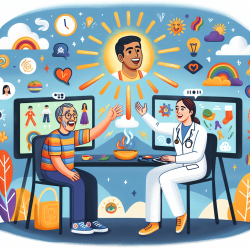The landscape of healthcare is rapidly evolving, driven by the explosion of data sources and the integration of artificial intelligence (AI). As these technologies become more sophisticated, there is an increasing need for medical professionals to develop competencies in data science to ensure effective healthcare delivery. A recent research article titled "Data Science as a Core Competency in Undergraduate Medical Education in the Age of Artificial Intelligence in Health Care" highlights the importance of incorporating data science into medical curricula. This blog explores how practitioners can enhance their skills by implementing these research outcomes.
Why Data Science Matters in Healthcare
Data science involves analyzing large sets of data to extract meaningful insights and make informed decisions. In healthcare, this means using data to improve patient outcomes, streamline operations, and personalize care. The ability to interpret and utilize health data is becoming essential for physicians as AI-driven tools become more prevalent in clinical decision-making.
Integrating Data Science into Medical Education
The research outlines several key areas where data science can be integrated into medical education:
- Fundamental Concepts: Introducing students to basic principles of data science early in their education can provide a strong foundation for understanding its role in healthcare delivery.
- Health Data Sources: Understanding different types of health records and patient-generated data is crucial for future physicians. This knowledge enables them to leverage diverse data sources effectively.
- Data Analysis: Training students in traditional and novel analytical methodologies prepares them to handle complex datasets and apply machine learning techniques.
- Ethics and Privacy: As data usage increases, so do concerns about privacy and ethics. Educating students on these topics ensures they are prepared to handle sensitive information responsibly.
Overcoming Barriers to Implementation
The integration of data science into medical curricula faces several challenges. Faculty development is essential to equip educators with the necessary skills to teach these new topics. Additionally, continuous updates to the curriculum are needed to keep pace with technological advancements. Despite these challenges, the benefits of producing data-literate physicians far outweigh the obstacles.
The Role of Practitioners
Practitioners play a crucial role in this transformation by advocating for curriculum changes and participating in ongoing education themselves. By embracing data science, they can enhance their practice and provide better care for their patients.
For those interested in further exploring this topic, reading the full research article offers valuable insights into the integration process and potential outcomes. To read the original research paper, please follow this link: Data Science as a Core Competency in Undergraduate Medical Education in the Age of Artificial Intelligence in Health Care.










